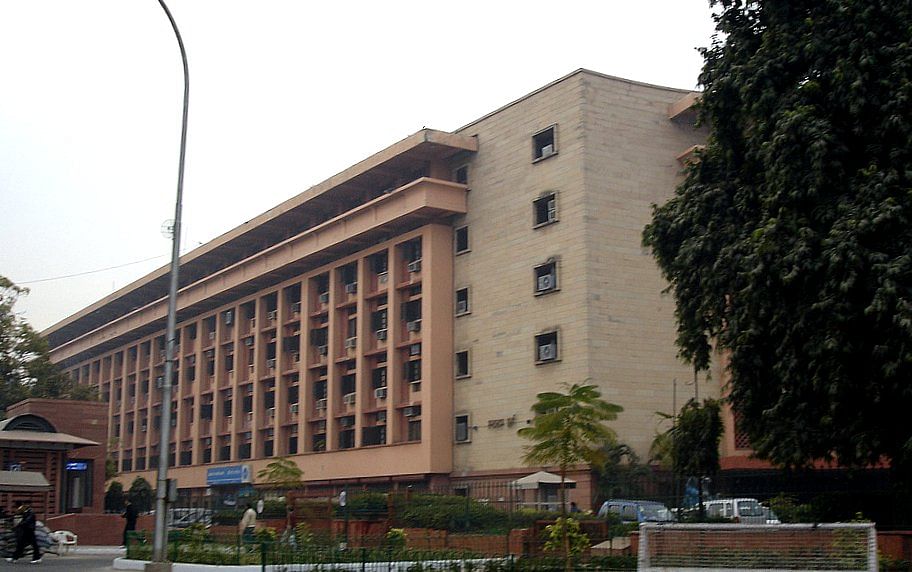New Delhi: Senior officers have begun resisting the Indian Railways’ decision to end the colonial-era practice of posting ‘bungalow peons’, officially known as telephone attendant-cum-dak khalasis (TADKs), at their residences.
A day after the Railways’ announcement to place the practice under review, officers’ associations of the South Western Railway, Southern Railway, East Central Railway and West Central Railway shot off letters to the chairman of the Railway Board, calling the decision “unilateral”, “shocking”, and one that has affected the morale of the officers who are “working hard round the clock during the Covid-19 crisis”.
The Railway Board had said in its Thursday order that no new appointments for TADK posts will be processed, effective immediately.
“The issue regarding appointment of TADK is under review in Railway Board. It has, therefore, been decided that any appointment of fresh face substitutes as TADK should not either be processed or made with immediate effect,” it stated.
“Further, all cases approved for such appointments since 1 July 2020 may be reviewed and position advised to board. This may be complied with strictly in all railway establishments.”
Following the order, a railways ministry spokesperson said: “The Indian Railways is on a fast-transformational path of all-round progress. Many practices and management tools are being reviewed in view of changes in technology and working conditions. Measures taken are in to be seen in such context.”
With earnings having nosedived, the Indian Railways has been on an austerity drive for the last few months, ensuring a freeze on the creation of new posts, removal of retired and re-engaged staff, shifting outsourced activities to corporate social responsibility funds, moving ceremonial functions to digital platforms, and an immediate review and possible closure of uneconomic branch lines.
Also read: PMO to ‘intervene’ in Rs 1,500 cr signalling project as tender cost becomes a red flag
What does a bungalow peon do?
‘Bungalow peons’ or TADKs are typically picked by railway officers themselves. After working at an officer’s residence for 120 days, a TADK is hired as a temporary employee of the Indian Railways.
TADKs can become permanent employees after a screening test on completion of three years of service.
Formally speaking, TADKs are hired for attending telephone calls and carrying files from the offices to the officers’ homes. But over the years, they have come to be used by the officers to perform household chores like cooking, taking care of young children, etc.
Officers allege ‘insensitivity’ by govt
The decision to tinker with the practice of hiring bungalow peons has caused alarm among the railway bureaucracy, with officers claiming that the government’s decision reeks of insensitivity, as it fails to acknowledge the “extreme intensiveness” of their duties.
The West Central Railway Officers’ Association, for example, wrote in its letter to the Railway Board chairman: “Such sudden and unilateral decisions of Railway Board to pend recruitment of TADK without due consultation with the officers’ associations has severely affected the morale and motivation of railways officers who are working day and night for running and improving railway working.”
The association added: “It is also worth highlighting that the facility of recruitment of TADK to railway officers has also been one of the added attractions for the aspirants to join the elite railway services on preference. If this facility is withdrawn or its nature is changed or diluted, then it will not only have adverse effect on the serving officers but will as well affect the preference of bright prospective candidates to join railway service.”
Addressing rumours that under the reviewed policy, the railways will pick TADKs instead of letting the officers do so, the WCR association said: “In case other modes of selection are adopted, the assigned person may not be having the trust of the officer and may interfere with the officer’s work as well as compromise the safety and jeopardise the security of officer’s family.”
The Railway Officers’ Association added: “Since the place of work of the TADK is the residence of the officer, in effect the person becomes like a member of the household during the initial years of appointment. There is a high level of trust, intimacy and personal involvement between the TADK and the officer’s family and a close rapport and cooperation is expected from this relationship. Engaging TADK through a common process and from a common pool negates these principles of personal rapport and intimacy.”
The South Western Railways Association has gone a step further and said that not only should the earlier practice be continued, but also extended for junior scale officers.
All the associations have requested that they be consulted in case of any change in the policy.
Also read: Piyush Goyal pushes to ‘fast track’ merger of railway services, seeks to convince officers
